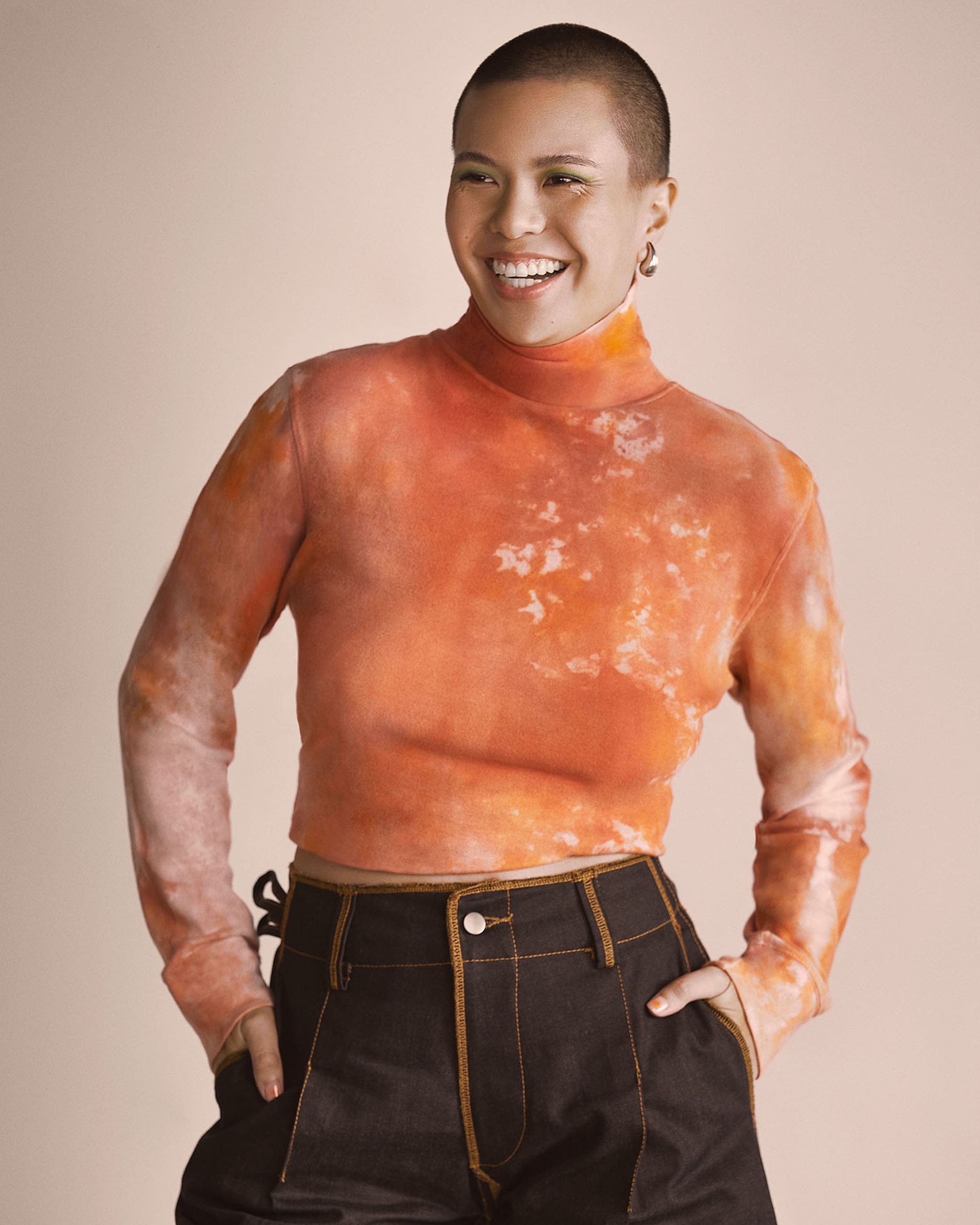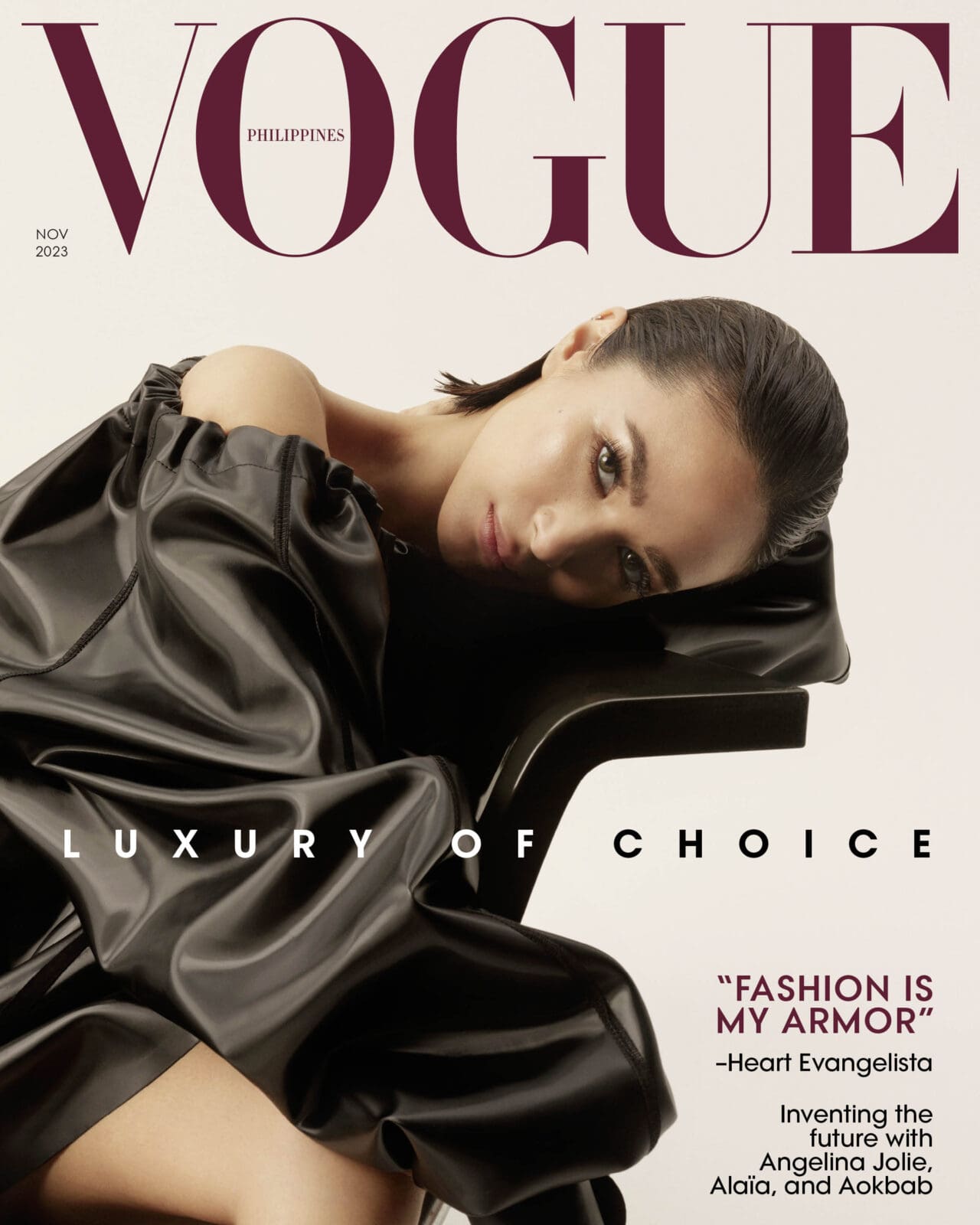Photo by Joshua Tolentino
Jo Sebastian constantly reminds everyone that we “always deserve to eat,” but we should do so with a healthier, kinder mindset.
#FitnessTok—a hashtag rabbit hole dedicated to health and well-being that you can fall into within the confines of the social media behemoth TikTok—leads to a cacophony of voices. From gym rats teaching viewers how to prepare low carb meals for the entire week to physical therapists fixing common aches and ailments with simple body movements to more than a handful of people professing the benefits of meditation and crystals, the variety is impressive if not overwhelming. Scroll enough and you might land on that of dietician, writer, and nutritionist Jo Sebastian.
Several reasons might make you do a double take and park at her account: for one, Jo is bald, a bewildering fixation for a few people in her comments section (“It’s so random, I already know I’m bald”). For her, it was simply a way of supporting a cancer-stricken sister going through therapy; she is also happily encouraging you to partake of (gasp) fast food, albeit with some adjustments; and, finally, she would almost always end every video with the same mantra: “Remember, you always deserve to eat.”
Unlike countless others, Sebastian doesn’t want to just catch your attention, she wants to do what the other half TikTok (the half that doesn’t stop at entertaining, titillating, riot inciting, or aggravating) wants to do: educate.
“One of my biggest principles as a dietitian is I want to empower people with knowledge,” she says, “not straight up ‘do this do that,’ but knowledge about what they can do… you can be more independent and make these food choices on your own.”
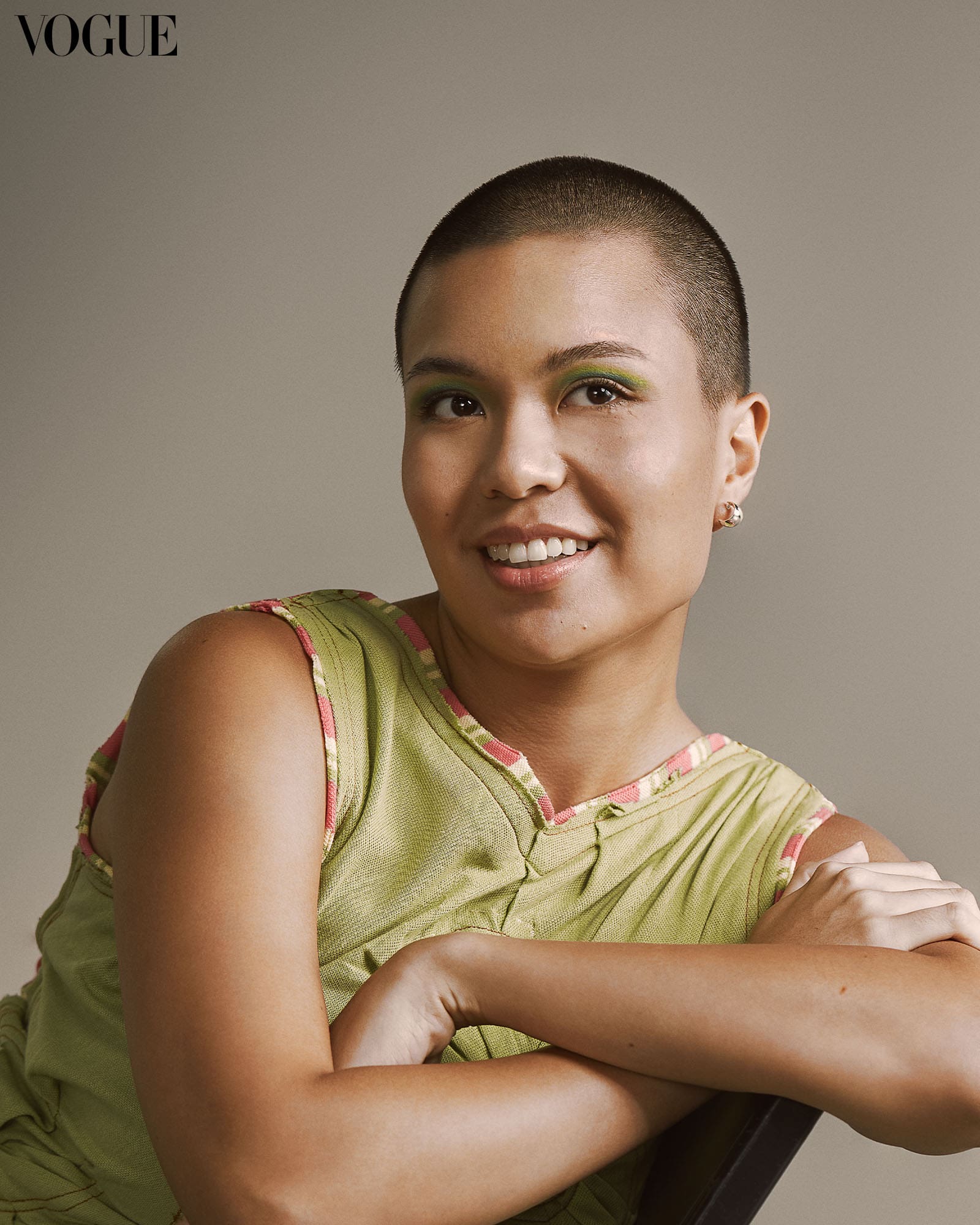
Stops and starts
A key moment that started Jo on her admittedly rocky path happened in high school. “I went to an arts school for ballet, and on our very first day, our fourth years lined us up and told us what we had to change about our body. And apparently mine was that my stomach was too big, and that I needed to lose weight,” she shares.
This experience, understandably jarring to a teenager just wanting to pursue an artistic passion, led her to trying different diets and ways to lose her supposedly excess weight: she stopped eating rice, skipped meals, tried not to snack, and kept her calorie count extremely low.
That initial desire to simply lose weight developed into a full blown curiosity in nutrition. “I wanted to eat whatever I want and not gain weight, so I was like ‘how do I do that?’ Jo says. She searched online and found different diets, though she admits a lot of the information she stumbled upon wasn’t exactly in the up and up. “It really made me find interest in science and in nutrition in general,” she continues. “And that’s actually why I went into nutrition for college.”
Jo also wanted to help her fellow dancers and others like her who were still struggling with their relationship with food, and who wanted to learn how to “fuel their body properly, so that they are not constantly restricting or thinking about food.” But Jo shares that that motivation didn’t stick, and it wavered a lot in college.
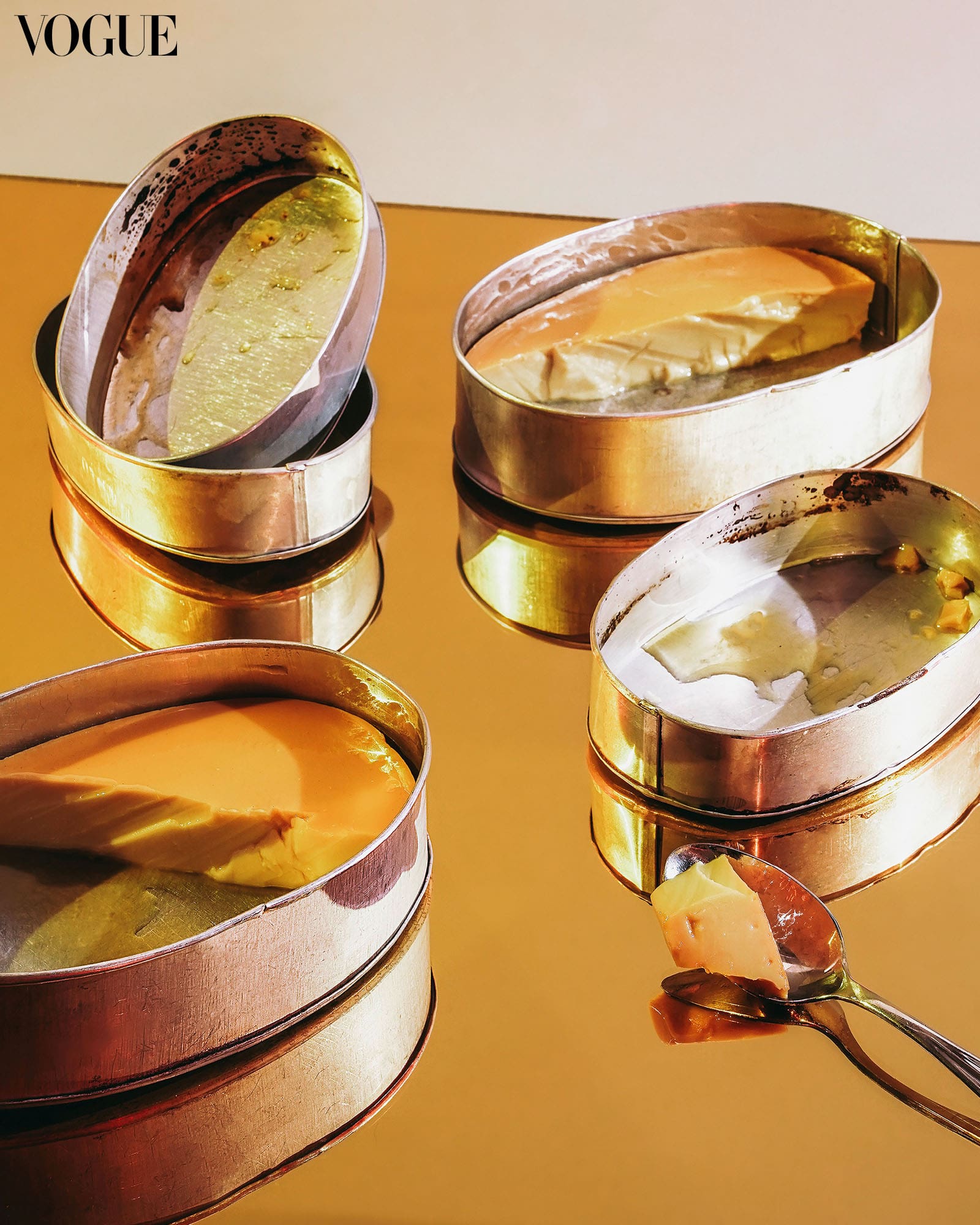
She also stopped dancing during this time. “I felt like I had to stop dancing to be able to fix my relationship with food,” she shares. “My body was always this big thing that made me feel like my body was not good enough. So I gained a lot of weight, 20 to 30 pounds of weight,” she recalls.
The fact that she stopped was what actually led her to content creation. Being a born performer, she needed an outlet. Having seen the likes of vlogger Bethany Mota finding an audience online, she decided to do the same. Eventually, she veered from her makeup and lifestyle beat beginnings and decided to focus on health and nutrition due to her many stops and starts in dieting, which even included a stalled attempt at doing a “bikini body” challenge on YouTube. This renewed her interest in fitness.
But while she was “constantly doing cardio, doing ab exercises, 300 crunches a day!” and “seeing results” because of her efforts, the content creator didn’t see anything beyond the weight loss. She felt she lacked energy and didn’t feel strong in any sense.
That search for strength led her to weightlifting, a discipline that her sister introduced her to, which had its own complications. “I was always afraid to lift weights because I thought I was going to be bulky. But then I started lifting weights, and I found out I could feel strong. And that’s really when that interest came in for being strong, working on, on fueling my body,” Sebastian says. “It was still a lot of restrictive dieting mindset, of course. It was like back and forth between wanting to be as small as possible, and then wanting to be strong. And then a lot of that dieting mindset here and there.”
When she started reviewing for her board exam, she realized that she didn’t want to be obsessed with her body anymore. “I was still so obsessed with food, thinking that it was a healthy obsession, but it wasn’t. That turned things around because I noticed and saw how people seemed to not worry about what they are eating and they are happy and they are fine. But me, any single bite of food just caused me to go crazy and judge myself and criticize myself and overthink it. All of those things,” she shares. “So what really turned things around was that I just wanted to let go of that and I just wanted to be free, and that’s when I found intuitive eating and food freedom, in myself and in my content.”
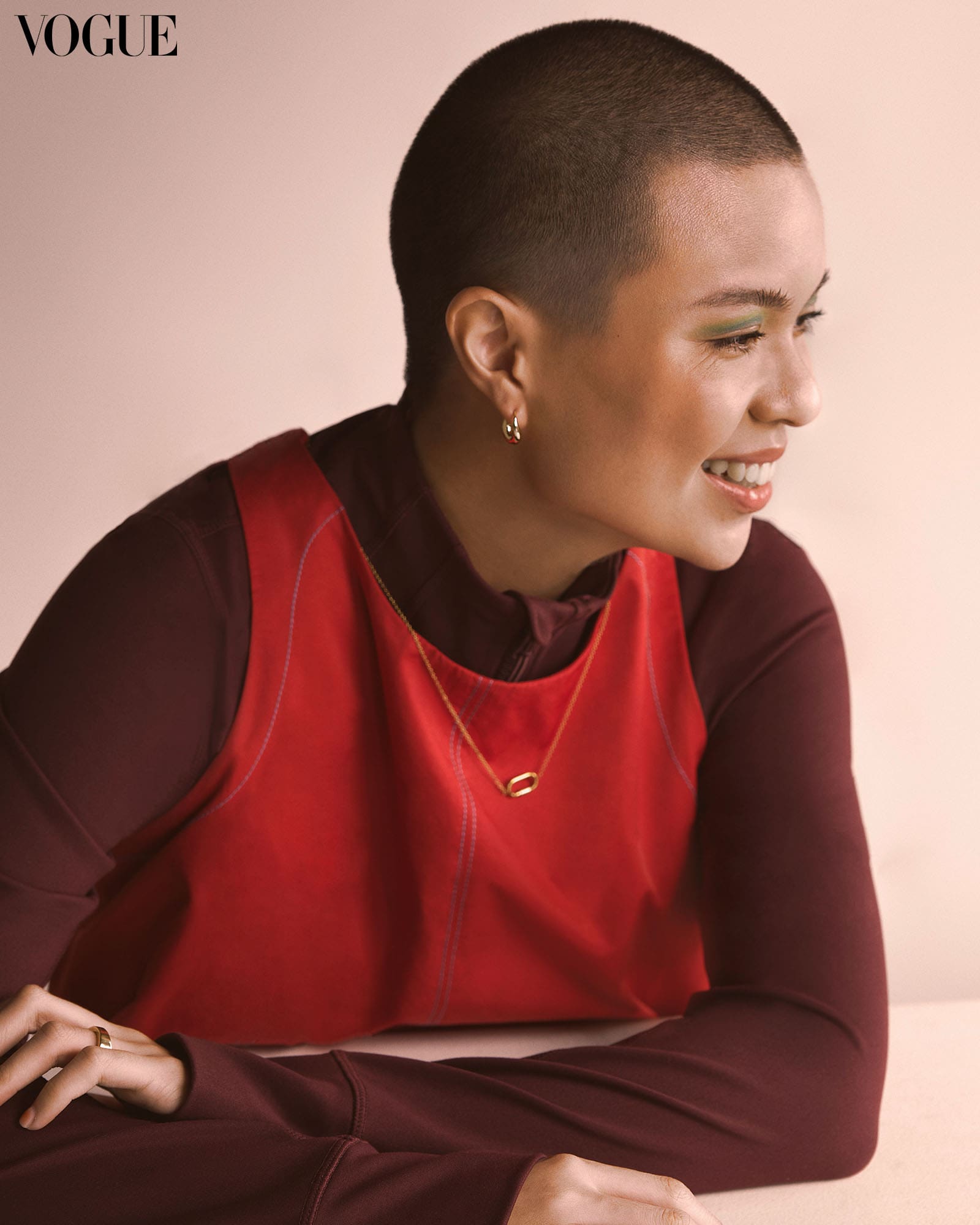
Kindness first
Jo says that she’s come to realize that nutrition is about “balanced variety in moderation.”
“Balance says that all food groups offer something. So instead of focusing on what to remove, focus on how to make sure that they are all present in right amounts,” she explains.
A prime example of this principle can be seen in her videos where she shows how she eats McDonald’s and BonChon. It started out as a random video of her adding broccoli to her sister’s Mang Inasal order. “I want to help people find how health could fit into their life and context because not everybody has the same 24 hours,” Jo says. “Not everybody has the same accessibility and opportunities and even time around food and nutrition. How can we make it more realistic and doable?”
It is a particularly helpful series given that nutrient rich foods and healthy eating is still significantly more expensive and inaccessible for many. The average Juan needs that flexibility. That, and a wider perspective when it comes to variety. Jo points out that your carbs shouldn’t just be limited to bread or rice, for example. You can switch it up. “Every single food item offers a different set of nutrients. And if you only eat the same things all the time, you might be limiting the amount of nutrients that you have,” she adds. “Plus, variety plays a very important role in your longevity and consistency in your diet because you might get sick of the food if you are eating the same thing all the time.”
“I want to help people find how health could fit into their life and context because not everybody has the same 24 hours“
Preaching against restriction and the fear of eating certain foods is a common theme in Jo’s videos. For her, moderation is more than just eating as little as possible of your favorite food. “It’s about moderating the signals that your body sends to you. If you eat a whole box of pizza and it doesn’t make you feel good, we have to moderate that cue and that signal, instead of judging yourself as like ‘Oh my god, you suck, you ate this whole pizza’,” she explains. “Moderating it would be, ‘Hey, what’s happening? What’s going on? How do we feel?’ The same way that if you’re force feeding yourself this whole giant salad and you don’t feel good, moderating those signals would be ‘What’s going on? How could we make this more fun’?”
We should be able to enjoy our food. “Food does not have to be a constant battle, constant stress and overthinking. It can be fun, and these are the ways that we can make it fun,” she emphasizes. “Focus on being more curious about your nutrition rather than [being] judgmental all the time. Ask yourself why these things are happening, find solutions, understand your body. Those for me are the most important.”
That, and kindness. “Self-care comes from care, and care is about kindness and compassion. If you don’t have that kindness within yourself, you are literally just doing self-hate,” Jo says simply. “I have done that for so long. I thought that health was about punishing myself, trying to be as small as possible, not feeding myself, overworking myself, I thought that that was health. But what happened? I socially isolated myself from friends because I couldn’t eat what they were eating when we went out. I was always tired, [I had] no energy to do other things, and I didn’t get to focus on anything that I wanted in life.”
In her own words, Jo says she lost half of her life to dieting and working out because she “hated her body.” And if you hate your body, don’t like yourself, and don’t think that you are worthy, she warns that it’s going to show up in the way that you take care of yourself. Appreciating, respecting, and accepting your body doesn’t necessarily mean that you don’t care what it looks like, but you focus more on its “function rather than its aesthetics and knowing that you want to be capable of doing many things, that kindness is going to come out. You’re not going to be able to take care of yourself through hate. You’re not going to be able to hate yourself into a version that you will love, so why don’t we try kindness this time? I’ve tried ‘hate’ already, and it didn’t work.”
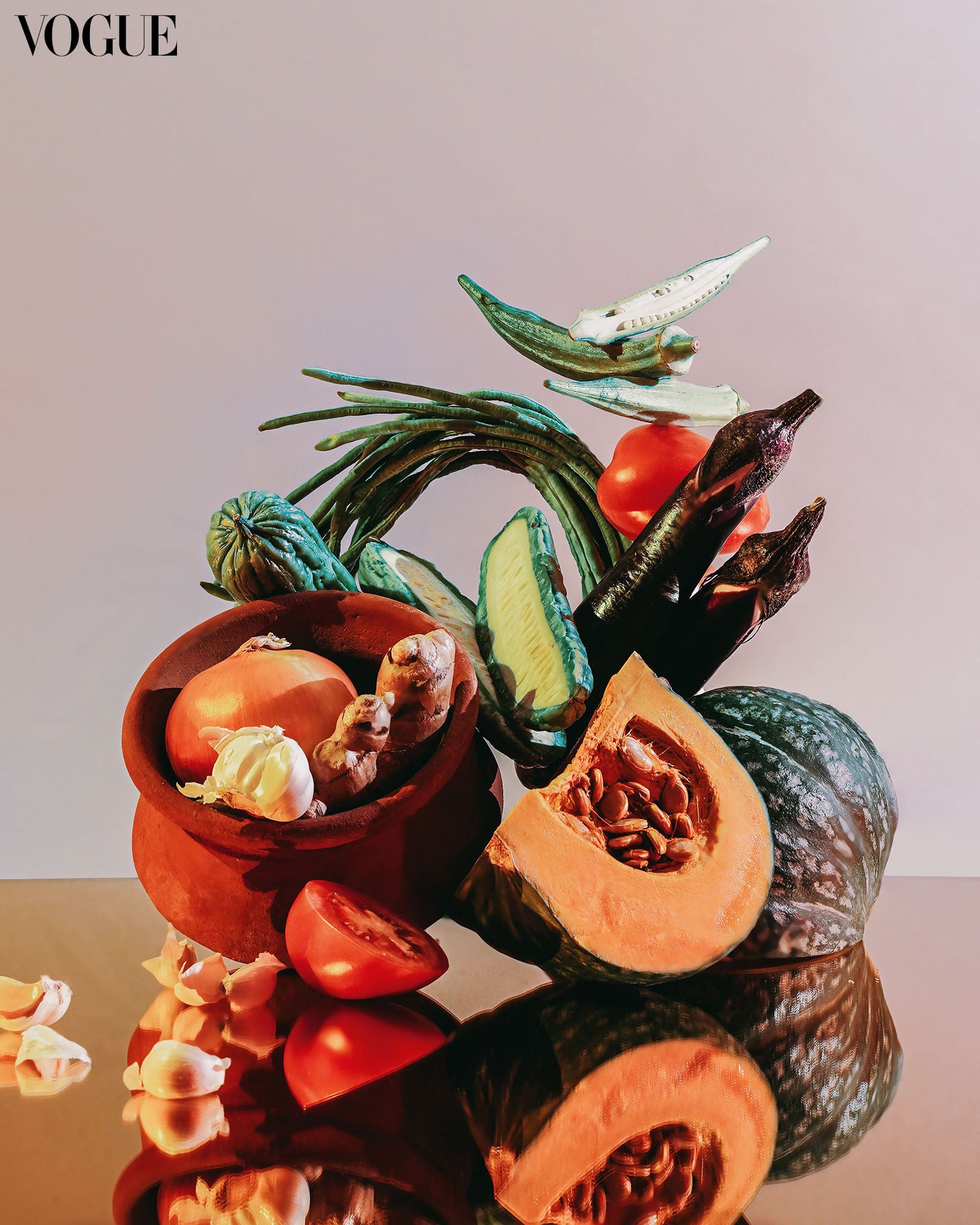
As with everything, the first step is awareness. “If you are not aware that these habits that you might be doing, that these diets that we might be trying, are not necessarily the healthiest, then nothing is really going to happen because you are still going to think that it’s the right way, it’s the perfect way, keep doing it,” Jo says.
You don’t have to be struggling all the time with what to eat, she continues, and you don’t have to be constantly thinking about the numbers around food or that thinking that ‘carbs is bad.’ “You have to first recognize that health doesn’t have to be that way, doesn’t have to be that hard,” Jo says. And, while it takes time to get to a point of enlightenment, without awareness, you won’t be able to find the path that diverges from diet culture and toxic mindsets.
‘“Hopefully my videos are just more of this awareness of ‘Oh yeah you don’t have to struggle with your food. Oh yeah, you don’t have to restrict yourself.’ And then hopefully that will be a fuel that will light the fire of ‘I want to have a better relationship with food’,” she says.
That statement should carry above the noise of cruel high school remarks, crazy TikTok fitness trends, and our own self-destructive tendencies. Because, not only do we deserve to eat, we also deserve to be at peace.
By JACS T. SAMPAYAN. Portraits by JOSH TOLENTINO. Beauty Editor: JOYCE ORENA. Stylist: Danae Dipon. Makeup: Karmela Jabla of M.A.C Cosmetics. Producer: Bianca Zaragoza. Nails: Extraordinail. Multimedia Artists: Gabbi Constantino, Tinkerbell Poblete. Production Assistant: Bianca Custodio. Photographer’s Assistant: Might Mercado. Stylist’s Assistants: Justine Benitez, Melaika Varca. Makeup Assistant: Abbegail Dicang. Food Photographer: Francisgum. Food Stylist: Hans Pena. Lighting Assistant: Roneil Chavez.
- Syncing With Your Cycle: The Health Trend That Teaches You To Embrace Your Period
- Ayurvedic Wisdom And Filipino Flavors Come Together for Holistic Health
- Logan Edra On The Power of Dance To Transform Physical, Mental, and Spiritual Health
- The 15 Best Meditation Apps for a Moment of Calm in 2023
- 4 Biome-Friendly Filipino Skincare Brands To Nurture The Skin We’re In
- 5 Commonly Consumed Foods That Sound Healthy, But Aren’t
